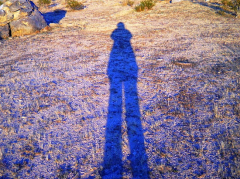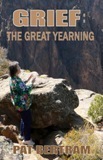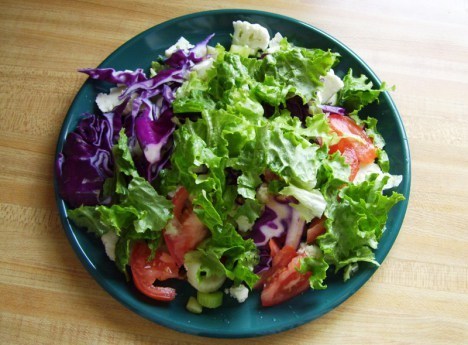Pat Bertram's Blog, page 222
September 14, 2013
Things Your Mother Should Have Told You
There is a post going around on Facebook, “Things your mother should have told you,” and I can’t get it out of my head. From the title of the post, I expected advice such as how to get bullies to stop picking on you, how to be strong and graceful, and how to figure out what you want and go after it while keeping your compassion and consideration for others. Instead, it was a list of silly household tips such as how to clean a toilet using Alka-Seltzer, how to soften hard brown sugar, and how to get glossy piecrusts. Really? These are the things our mothers should have told us? Why?
Perhaps in a nineteen-sixties television show where mother is always home, always perfectly dressed and coifed, always cool tempered with a wry smile for the shenanigans of her family, always ready with the perfect solution to any household problem, then of course, these mothers should have told their children such things because it was all they knew. But who lived like that? No mother I’ve ever known has had the time to pass down  such inanities, especially nowadays when mothers are more apt to be heading corporations or running their own businesses than staying home and having passels of children. (And the stay-at-home moms have plenty of work to do without worrying about passing on such inane tips.)
such inanities, especially nowadays when mothers are more apt to be heading corporations or running their own businesses than staying home and having passels of children. (And the stay-at-home moms have plenty of work to do without worrying about passing on such inane tips.)
Besides, today we have Google. If you want to find out how to keep an ice cream cone from dripping, you don’t have to get the information handed down to you from your mother or from a list of things she should have told you — you can Google it, though I can’t imagine why anyone would want to. (Apparently, dripping ice cream cones is a hot issue. I just Googled “how to keep an ice cream cone from dripping” and got 220,000 results.)
Perhaps the list of things your mother should have told you is a leftover from the nineteen-sixties television show era — some of the tips are rather outdated. For example, one of the things she should have told you is that if you want to see if an egg is fresh, drop it in a pan of water. If it sinks to the bottom, it’s fresh. Frankly, if I want to see if an egg is fresh, I simply look on the egg carton for the expiration date. The few times I have bought eggs fresh from the farm, I had to trust the person selling me the eggs since at the time I wasn’t carrying around a pot of cool salted water.
I think what bothered me most about the list is that it assumed a mother’s place is only in the home, collecting such tips. Can you see Margaret Thatcher, Indira Ghandi, or Hilary Clinton giving their children such tips? Can you see them caring enough about a little leftover wine to freeze it and use it later, let alone take time out from running a country or a constituency to tell their children about it? Can you see them carrying around a bit of raw potato to remove unsightly food stains from their manicured hands? Or worrying about removing burnt-on food from a pan?
There are many important things our mothers should have told us, but using air freshener to clean mirrors is not one of them.
***
Pat Bertram is the author of the suspense novels Light Bringer, More Deaths Than One, A Spark of Heavenly Fire, and Daughter Am I. Bertram is also the author of Grief: The Great Yearning, “an exquisite book, wrenching to read, and at the same time full of profound truths.” Connect with Pat on Google+. Like Pat on Facebook.
Tagged: dripping ice cream cone, Hilary Clinton, how to tell if an egg is fresh, Indira Ghandi, Margaret Thatcher, things your mother should have told you


September 13, 2013
Being Comfortable With Who I Was And Who I Am
During all these years of pouring my heart out online, I’ve never known anyone offline who checked out my online writings except for an occasional glance by a sibling. Lately, I’ve been meeting people offline, and when the conversation gets around to my telling them about my published books, they come online to check me out.
It’s one thing to meet people because of my grief blogs and grief book, but these people knew me before reading my emotional outpourings. When a couple of these new friends bought Grief: the Great Yearning, I thought I’d find it awkward for them to know so much about me — until the death of my life mate/soul mate, I was reticent about putting myself on  display — but oddly, it hasn’t been a problem. Perhaps I’m so used to living wholeheartedly online that being so upfront has become a habit. Perhaps psychologically, I know longer see a difference between online and offline — the two are melding together so that often after an exchange of emails with an online friend, I feel as if we have visited for real. Or perhaps it’s that the woman in the book is no longer me.
display — but oddly, it hasn’t been a problem. Perhaps I’m so used to living wholeheartedly online that being so upfront has become a habit. Perhaps psychologically, I know longer see a difference between online and offline — the two are melding together so that often after an exchange of emails with an online friend, I feel as if we have visited for real. Or perhaps it’s that the woman in the book is no longer me.
When I post excerpts from the book on this blog, sometimes I find myself crying for the woman who had to deal with such trauma, as if the person who wrote the passages were a stranger. And she is a stranger. I’ve come a long way since I wrote those entries — from coupled to uncoupled, from a deep connection to another human being to a solitary connection with the world around me, from a woman who’d lost her identity to someone who is coming to a new realization of who she is.
At the beginning of my grief, I used to bemoan that despite all the trauma, I was always just me, and it’s true — I am always just me. But that “me” has progressed (or at least sidestepped) into a different way of seeing, a different way of being. I used to feel as if everything were over, but now I sometimes feel as if everything is still to come. (Since in many ways I am starting over from scratch, by definition, everything is still to come, though at times it’s hard to maintain such a belief considering that I’m not young anymore.) I can feel the ebb and flow of life a bit better, accept the losses and even the joys that come my way. I still hope for more, of course (though I don’t know what that “more” might be — an even greater wisdom or openness perhaps), but at the moment I am comfortable being me.
And in the end, that’s probably the real reason I’m not uncomfortable with people knowing the truth of me — because I am comfortable with who I was and who I am.
***
Pat Bertram is the author of the suspense novels Light Bringer, More Deaths Than One, A Spark of Heavenly Fire, and Daughter Am I. Bertram is also the author of Grief: The Great Yearning, “an exquisite book, wrenching to read, and at the same time full of profound truths.” Follow Pat on Google+. Like Pat on Facebook.
Tagged: comfortable being me, Grief: The Great Yearning, just me, loss of identity, online vs offline friends, who I am


September 12, 2013
Grief and the Loss of Identity
I don’t feel disempowered as a women, perhaps because I seldom define myself by gender, religion, nationality, age, or any other consideration. I am simply . . . a being in flux. I have felt powerless at times, but not because of being a woman. The powerlessness came from being in situations greater than my abilities to cope. Sometimes I developed the necessary abilities, such as when I decided to be a writer, other times I simply endured, such as when grief slammed into me after the death of my life mate/soul mate. Either way, I managed to move beyond the powerlessness and regain my equilibrium.
This is not the way things always were, of course. When I was very young, many limitations were imposed on me because I was “just a girl.” (How I hated those words!) Luckily, the early limitations were offset by my experiences at the all-girl high school I attended. In a school where everyone is female, there is no gender bias — all activities are done by and all offices, honors, and awards are won by young women.
 It’s no wonder then, that when I fell in love, it was with an unbiased man. For thirty-four years, we lived in gender harmony. We played no roles, set no rules, followed no conventions. Never once in all those years did he tell me I couldn’t do something. Never once did I refuse to let him do something he wanted. Never once did he make me do a chore. Never once did I remind him of a task he promised to do. If one of us saw a job that needed to be done, we simply did it. Usually, though, we worked together. Some of my fondest memories are of us fixing meals together — he washing vegetables for a salad, me cutting them up. He reading seasonings off a recipe card, me tossing the herbs into the pot. (Or vice versa. What made it especially rewarding is that we’d created those recipes together.)
It’s no wonder then, that when I fell in love, it was with an unbiased man. For thirty-four years, we lived in gender harmony. We played no roles, set no rules, followed no conventions. Never once in all those years did he tell me I couldn’t do something. Never once did I refuse to let him do something he wanted. Never once did he make me do a chore. Never once did I remind him of a task he promised to do. If one of us saw a job that needed to be done, we simply did it. Usually, though, we worked together. Some of my fondest memories are of us fixing meals together — he washing vegetables for a salad, me cutting them up. He reading seasonings off a recipe card, me tossing the herbs into the pot. (Or vice versa. What made it especially rewarding is that we’d created those recipes together.)
During the last few years of his life, I did many things by myself in preparation for the time when I would be alone. I took long solitary ambles, went on trips, learned to use a computer and the internet. This became our life — he dying, me struggling to live.
Somehow I thought this would always be our life, but then he died, and “our” life ended.
My grief was so profound I felt as if part of me had been amputated. The pain, the angst, the loneliness were unbearable, but the worst trauma was the sudden and shocking loss of my identity. Being with him had allowed me to be myself, to be comfortable with both my good points and my bad points. Since I wasn’t in thrall to him (though I did often follow his wishes because I didn’t care what we did or what we ate as long as we were together), it never occurred to me there would be a problem when once again I became single. But I’d grown so used to being with him, that nothing, not even something as simple as watching a movie, seemed important when I did it alone. He’d been the focus of my life for so many years that without him I felt lost, felt as if my life had no meaning. Felt silly for unknowingly letting my identity get so caught up in “us” that when he died, I no longer knew who I was.
The truth is that even for those of us who have a strong identity and know almost everything there is to know about ourselves, a trauma such as the loss of a soul mate shakes our self-concept. Our psyches are like nesting dolls or boxes within boxes or doors within doors (choose your cliché). We never see the doors, so we think we know who we are, but a great emotional upheaval can cause a door to open, letting us see more of ourselves and what we are capable of, revealing a part of our identity that might have been hidden from us until that moment. We get to know who we now are, adding to or changing our idea of ourselves, rethinking the past in light of this new awareness. We might even get comfortable with this revised self-concept until a new trauma opens another door.
And so it is with me. It’s been three and a half years since his death, and until a new trauma comes along, I again know who I am — a being in flux, still strong, still developing my abilities, still learning to empower myself as a person.
***
Pat Bertram is the author of the suspense novels Light Bringer, More Deaths Than One, A Spark of Heavenly Fire, and Daughter Am I. Bertram is also the author of Grief: The Great Yearning, “an exquisite book, wrenching to read, and at the same time full of profound truths.” Follow Pat on Google+. Like Pat on Facebook.
Tagged: defining myself, gender bias, grief and loss of identity, just a girl, self-concept, self-empowerment


September 11, 2013
Salad Days
One staple of meals with my life mate/soul mate were salads. During our decades together, we always tried to eat plenty of raw vegetables, so our salads weren’t puny affairs with a few bits of vegetables and lots of iceberg lettuce. We used as many colors as we could — red tomatoes, purple cabbage, yellow squash, orange carrots, white cauliflower, green leaf lettuce. Since the salads were a time-consuming affair, we usually worked together, he washing the vegetables, me cutting them up.
I don’t remember much of the last year of his life (except for the last six weeks — those I remember). After he died I was in too much pain to recall that year, and now it’s too far in the past to recover the details.
But I do remember a time when I came in late from my walk, and he’d already fixed a salad for us. This was shortly before he got too sick to do anything but try to stay ahead of the pain. I don’t understand where he got the energy to fix the salad — his poor body was so ridden with metastases, it must have taken everything he had to do the simplest task, and yet, the salad was waiting for me when I got in.
Yesterday I mentioned how I carelessly let that last year slip by, how I didn’t hang on to his every word, but I was careful that day and took a photo of the salad, perhaps the last one he ever made for me. I wanted the picture because the plate was beautiful, not as a memory of him, but still, it showed I was paying attention to the good things in our shared life.
It seems impossible that he’s been gone for almost three and a half years. Seems impossible that our salad days are over and all that remains is this simple photo.
(Incidentally, “salad days” comes from Shakespeare’s Antony and Cleopatra. At the end of Act I, Cleopatra says, “My salad days, / When I was green in judgment.”)
***
Pat Bertram is the author of the suspense novels Light Bringer, More Deaths Than One, A Spark of Heavenly Fire, and Daughter Am I. Bertram is also the author of Grief: The Great Yearning, “an exquisite book, wrenching to read, and at the same time full of profound truths.” Follow Pat on Google+. Like Pat on Facebook.
Tagged: colorful vegetables, death and loss, making salads, raw vegetables, salad days


September 10, 2013
How Careless of Me to Have Lost Him
I don’t usually say I “lost” my life mate/soul mate. I just come right out and say that he died, but for some reason I used the word “lost” when explaining my situation to a new acquaintance. She said, “Whenever people tell me they lost someone, I want to say ‘how careless of you.’”
I didn’t take offense. She didn’t directly tell me I was careless, just said that was her inclination, and besides, I too have railed against the word “lost.” I didn’t misplace him. He died. But her words struck a chord with me. I do feel at times as if it were careless of me to have lost him. I should have loved him more, cherished him more, held him so tightly that death could not have wrested him from me.
 And yet, I did love him that much for most of our shared life. About twenty years ago, he almost died, and afterward I gave thanks for every day I had with him, cherished every moment knowing how fleeting life could be. For many years he endured ups and downs with his health, and finally there were only downs. During those last few years, I did more things by myself in preparation for the time when I would be alone. I took long ambles, went on trips, found new solitary interests. And this became our life — he dying, me struggling to live.
And yet, I did love him that much for most of our shared life. About twenty years ago, he almost died, and afterward I gave thanks for every day I had with him, cherished every moment knowing how fleeting life could be. For many years he endured ups and downs with his health, and finally there were only downs. During those last few years, I did more things by myself in preparation for the time when I would be alone. I took long ambles, went on trips, found new solitary interests. And this became our life — he dying, me struggling to live.
During those final years, and especially the last one, he turned into a stranger, and I didn’t know how to handle it when he pushed me away except to keep my distance. He was unable to hold thoughts in his head long enough to carry on a conversation, so instead of dialogue, I got only repetitious monologues from him. I bristled at his words, sometimes even clenched my fists to keep from venting my frustration. I didn’t know what was happening to him, to us, and I didn’t know how to stop it.
Now, of course, I know what happened (inoperable kidney cancer that spread to his spleen, to his lungs, to his bones, to his brain), and I think how careless of me to have let one of those final words slip past unappreciated, to have let one moment of our togetherness pass unnoticed.
I was lucky, though. During his last weeks, we reconnected, and I remembered why I had loved him all those years. Once again I cherished every moment we had together, but when he took his final breath, I let him go. He’d been in pain for such a long time, and even if it had been in my power, I would not have kept him here to suffer more.
I’ve worked through my guilt and regrets. I even understand the dynamics of our last years together and realize we both did the best we could in an untenable situation, but still I wish I could go back and capture every one of those words I so carelessly let slip away.
***
Pat Bertram is the author of the suspense novels Light Bringer, More Deaths Than One, A Spark of Heavenly Fire, and Daughter Am I. Bertram is also the author of Grief: The Great Yearning, “an exquisite book, wrenching to read, and at the same time full of profound truths.” Follow Pat on Google+. Like Pat on Facebook.
Tagged: loss and death, love and death


September 9, 2013
For Love of the Story
I watched For Love of the Game last night, but a different version than the one that was released in theaters or on tape or DVD.
My deceased life mate/soul mate was sick for many years, and one way kept himself busy when he hadn’t the strength to do much else was to tape movies. He started with our favorites, then went on to taping good parts of bad movies, and finally edited movies that we didn’t like. (It’s rather amusing — he turned a few dreadful serial killer movies into sweet romances by ending the movie before the charming killer showed his evil side.”
 The problem we both had with For Love of the Game was the constant intrusion of the backstory. Billy Chapel is pitching the last game of his career and he keeps stopping to reflect on his past — detailed flashbacks that would take up more than a few seconds between his pitches. Would fans in the stands really care that he was pitching a perfect game if he spent most of his time on the mound staring glassy-eyed into the past? Would he really be able to “clear the mechanism” so easily if his mind wasn’t on the game?
The problem we both had with For Love of the Game was the constant intrusion of the backstory. Billy Chapel is pitching the last game of his career and he keeps stopping to reflect on his past — detailed flashbacks that would take up more than a few seconds between his pitches. Would fans in the stands really care that he was pitching a perfect game if he spent most of his time on the mound staring glassy-eyed into the past? Would he really be able to “clear the mechanism” so easily if his mind wasn’t on the game?
My version is told in chronological order, from the meeting of the girl in the beginning to the remeeting at the end. When Chapel is pitching, then, his pauses are short, and seem more evidence of exhaustion than anything else.
So why am I mentioning this? I’ve been working sporadically on my novel about a grieving woman. A few years ago I wrote many scenes or parts of scenes, and I’m trying to figure out the best way to arrange the scenes and tell the story. As it stands right now, the story begins when the funeral people deliver the urn with her husband’s ashes, which is a good place to begin. (In a classic beginning, either a stranger knocks on the door or the character goes on a trip.) The only trouble is, there is a vast backstory that needs to be told, which is okay because it is about a woman grieving, after all, and much of grief is about unwinding the backstory, figuring out who you are, where you are, and how you got to that point.
Sometimes — most times, actually — stories need to be told in chronological order. It might serve my story better if I began when the husband got sick. It would show her dealing with his illness and would explain how she ended up in love with someone else while her husband was dying. This way, there would need to be only a few mentions of the past, such as when the met, what happened to her parents, etc, and not the constant intrusions into the past that are required if I were to start with the knock on the door.
But . . . a gun plays a role in the story. Finding the gun and eventually discovering the significance of the gun makes the grieving w oman realize that she put so much of herself into the marriage, and if she doesn’t know who her husband is, then how can she know who she is? If I told the story chronologically, the gun wouldn’t show up until the middle of the book, and it would lose its significance.
oman realize that she put so much of herself into the marriage, and if she doesn’t know who her husband is, then how can she know who she is? If I told the story chronologically, the gun wouldn’t show up until the middle of the book, and it would lose its significance.
I suppose the best thing for me to do is to forget about the chronology and just type up the scenes. Afterward, if necessary, I can edit the book and put everything in chronological order. Either way, it’s all for love of the story.
***
Pat Bertram is the author of the suspense novels Light Bringer, More Deaths Than One, A Spark of Heavenly Fire, and Daughter Am I. Bertram is also the author of Grief: The Great Yearning, “an exquisite book, wrenching to read, and at the same time full of profound truths.” Follow Pat on Google+. Like Pat on Facebook.
Tagged: backstory, chronological order, flashbacks, For Love of the Game, for love of the story, Kevin Costner, telling a story


September 8, 2013
Help! I Need a Guest Blog Topic
I’ve been invited to write a guest blog for UniteWomen.org. This is a huge honor since the Facebook group alone has more than 80,000 fans, so of course I said yes. To be honest, though, I would have said yes even if they honly 800 “likes” — I’m a big fan of the woman who asked me, and I appreciate the work she does to help empower women.
Oddly, I’ve never felt disempowered as a women, perhaps because I seldom define myself by gender, religion, nationality, age, or any other consideration. I am simply . . . a being in flux. I have felt powerless at times, but not because of being a woman. The powerlessness came from being in situations greater than my abilities. Sometimes I developed the necessary abilities, other times I simply endured. Either way, somehow I moved beyond the powerlessness and here I am — still strong, still developing my abilities, still learning to empower myself.
times I simply endured. Either way, somehow I moved beyond the powerlessness and here I am — still strong, still developing my abilities, still learning to empower myself.
(Grief was one of those situations where I felt powerless, but I embraced the experience and endured.)
I have a third way of getting through situations greater than my abilities, such as my current inability to decide on a blog topic — I ask my blog readers for their input.
The woman suggested several topics for the guest blog:
Anything relating to women’s rights, gender equality, your identity as a woman (in and/or out of the romantic partnership).
Re-establishing your identity as a woman after the loss of your partner.
Lessons learned — anything that would empower or inspire other women.
How writing can be very healing and that you would recommend it to anyone who has gone through trauma.
How female friends supported you through grief.
Whatever you want to say to 80,000 women who are struggling for equality.
She also suggested a post about women judging and criticizing other women, like those who told me to “get over it” when I was grieving, but I don’t want to do that one. Sounds too antithetical for the blog.
Do any of these topics strike you as being more interesting than the others? Or is there another topic besides those listed that I should consider doing?
***
Pat Bertram is the author of the suspense novels Light Bringer, More Deaths Than One, A Spark of Heavenly Fire, and Daughter Am I. Bertram is also the author of Grief: The Great Yearning, “an exquisite book, wrenching to read, and at the same time full of profound truths.” Follow Pat on Google+. Like Pat on Facebook.
Tagged: blog topic, empowering women, gender equality, guest blog, identity as a woman, UniteWomen.org


September 7, 2013
Life Is Weird Place To Live
Life is weird place to live. Just a few days ago, people were calling me negative — so many, in fact, that I began to believe I really was negative — and now people are calling me positive. Not those same people, of course. I haven’t talked to any of the first group in a while, and some I might never talk to again. Even if I were negative, being called negative creates negative vibrations, and I certainly don’t need any more of those in my life.
I’ve been making an effort to meet new people. I found out that the local Sierra Club does a conditioning walk three nights a week, and I’ve been walking with them, which has been fun. It’s a great activity for introverts and designated listeners since everyone gets a chance to talk. (In most of my friendships, I’m the listener, whether I want to be or not.) Although we walk fast (three miles in an hour or less), it’s a social occasion, and the adrenaline and blood rush keeps us all in good spirits. The walkers are wonderful people, interesting and supportive of one another. And they think I’m upbeat, have a good attitude, am interesting. It does my ego good, though I’m sure the truth of me lies halfway between the two extremes of positive and negative.
Overall, the first group of people seemed more unhappy than this second group, and both groups were seeing themselves reflected in me and I was reflecting off them, like one of those mirrored illusions in a fun house where  you see yourself reflected endlessly. If you see a thousand images of yourself, which one do you choose as the real image? Maybe all are real in one way or another. Our bodied selves might be an illusion, too. Maybe the person we see in a single mirror is but one of our myriad images that we choose to inhabit for that moment.
you see yourself reflected endlessly. If you see a thousand images of yourself, which one do you choose as the real image? Maybe all are real in one way or another. Our bodied selves might be an illusion, too. Maybe the person we see in a single mirror is but one of our myriad images that we choose to inhabit for that moment.
A better analogy might be the energy between two points. An idea, for example, doesn’t exist in our neurons but in the energy zinging between the neurons. Maybe whoever we are at a given moment are the personas we and the people around us create in the energy zinging between us.
When we are in love with someone, often we love who we are when we are with that someone. We love the persons we create between us. (This could be why the death of one’s mate is so devastating — among all the other horrors and gifts of grief, we truly do have to deal with the loss of ourselves.)
Hmm. I’ll have to think about all this. Are we really so fluid? Are we simply bodies of energy that flow around and through all we encounter, changing and being changed with every brush with another creature? If there is nothing immutable at rock bottom, then life really is a weird place to live.
***
Pat Bertram is the author of the suspense novels Light Bringer, More Deaths Than One, A Spark of Heavenly Fire, and Daughter Am I. Bertram is also the author of Grief: The Great Yearning, “an exquisite book, wrenching to read, and at the same time full of profound truths.” Follow Pat on Google+. Like Pat on Facebook.
Tagged: conditioning walk, fun house mirrors, life is a weird place to live, negative people, positive people, the energy between two people


September 6, 2013
Breaking Up is Hard to Do (Or See)
Lately, I seem to be torn by divided loyalties. Not only are my loyalties divided between two family members, they are now being divided between two friends who once were business partners. They need each other and the business needs them, but as intelligent as they are, they don’t seem to communicate well. They hurt each other, expect too much from each other, blame each other. And since I’m close to both of them, I am in the middle. I wish I could sit them down (or better yet, bang their heads together) and get them to listen to the truth of the other beyond recriminations, guilt, and regret, but it is not my place.
 Sometimes outsiders can see what those involved cannot see, but we cannot feel the emotions that are driving our friends apart, and so we can only stand by, ready to listen if they want to talk. Even if I wanted to do something, it’s not my fight, and inserting myself between them will add fuel to an already combustible situation.
Sometimes outsiders can see what those involved cannot see, but we cannot feel the emotions that are driving our friends apart, and so we can only stand by, ready to listen if they want to talk. Even if I wanted to do something, it’s not my fight, and inserting myself between them will add fuel to an already combustible situation.
I grieve for them and what they are losing. I grieve for what I am losing. But, as with my family situation, I can’t run their lives for them, and I can’t change anything. Maybe no one can. Maybe the roots of the conflict go back too far to untangle. Maybe the breakup has gone forward too far to be rewound. Maybe . . . maybe they will find a way to set aside their feelings and make it work after all, but I don’t hold out much hope. Their loyalties to each other and the business were in conflict, and without reciprocity, loyalty becomes a type of servitude, adding even more conflict to a complicated situation.
In fiction, conflict is all important, and even in life, some conflict is beneficial — one partner was aflame with fantastic ideas, the other partner more down to earth and able to put those fantasies into action. But too much conflict puts a strain on even the most congenial relationship, and this partnership was not always congenial.
I’ve never had to deal with a divorce between two people I cared about — usually I knew only one of the parties. But now I know how I would feel — terribly sad and powerless.
***
Pat Bertram is the author of the suspense novels Light Bringer, More Deaths Than One, A Spark of Heavenly Fire, and Daughter Am I. Bertram is also the author of Grief: The Great Yearning, “an exquisite book, wrenching to read, and at the same time full of profound truths.” Follow Pat on Google+. Like Pat on Facebook.
Tagged: breaking up, business partners, conflict, divided loyalties, divorce between friends, losing friends


September 5, 2013
Excerpt From “Grief: The Great Yearning” — Day 165
 During the first year after the death of my life mate/soul mate, I often wrote to him in an effort to bridge the gap between us. The only problem was, he never wrote back and told me how he felt about his dying and our separation. Did he feel as broken as I did? Did he feel as if part of him had been amputated? Or was he simply glad to be shucked of his body, and perhaps even of me?
During the first year after the death of my life mate/soul mate, I often wrote to him in an effort to bridge the gap between us. The only problem was, he never wrote back and told me how he felt about his dying and our separation. Did he feel as broken as I did? Did he feel as if part of him had been amputated? Or was he simply glad to be shucked of his body, and perhaps even of me?
It’s been three years now since the following letter was written. I still don’t understand the purpose of pain, loss, suffering. Still don’t understand the nature of life or death. Still don’t know how energy can have cognizance, if in fact, consciousness survives death. The main difference is that the wound where he was amputated from me has healed. I don’t worry about him — at least not much — but I still miss him and I probably always will. Most of all, I am learning to get on with my life.
Excerpt from Grief: The Great Yearning
Day 165, Dear Jeff,
People keep telling me that you’re in a better place, but that I have to get on with my life because life is a gift. Huh? If you’re in a better place, why aren’t I there? If life is a gift, why was it taken from you?
I still can’t figure out the point of it all. Is there anything universally important? Love, perhaps, but not everyone loves or is loved. Creativity? But not everyone is creative. Truth? But what is truth? If nothing is universally important, does anything matter? You’re probably tired of this constant questioning, but your death has posed such a conundrum for me that I’m totally lost. I need to find the bedrock of life, a foundation on which to rebuild my life.
I had no idea I had all these tears in me. The drops are huge, like a badly dripping faucet. I am still stunned by the depth and breadth of my grief. I grieve for the good times and the bad. I grieve for what I got from our relationship and what I didn’t. I grieve for me, what I’ve lost, and what I’ll never have. I grieve for you and all you lost, all you never had, all you never will have. I grieve for that young man, that radiant man I met so many years ago because I know the end of his story. And I grieve for the man whose life was cut short.
It can’t be normal, this protracted grief, but people in the grief business keep assuring me I’m doing well.
I hope you’re doing well, too. I love you. I always will.
Click here to find out more about Grief: The Great Yearning
***
Pat Bertram is the author of the suspense novels Light Bringer, More Deaths Than One, A Spark of Heavenly Fire, and Daughter Am I. Bertram is also the author of Grief: The Great Yearning, “an exquisite book, wrenching to read, and at the same time full of profound truths.” Connect with Pat on Google+. Like Pat on Facebook.
Tagged: grief and healing, grief and searching for meaning, grief as amputation, Grief: The Great Yearning, in a better place, life is a gift






